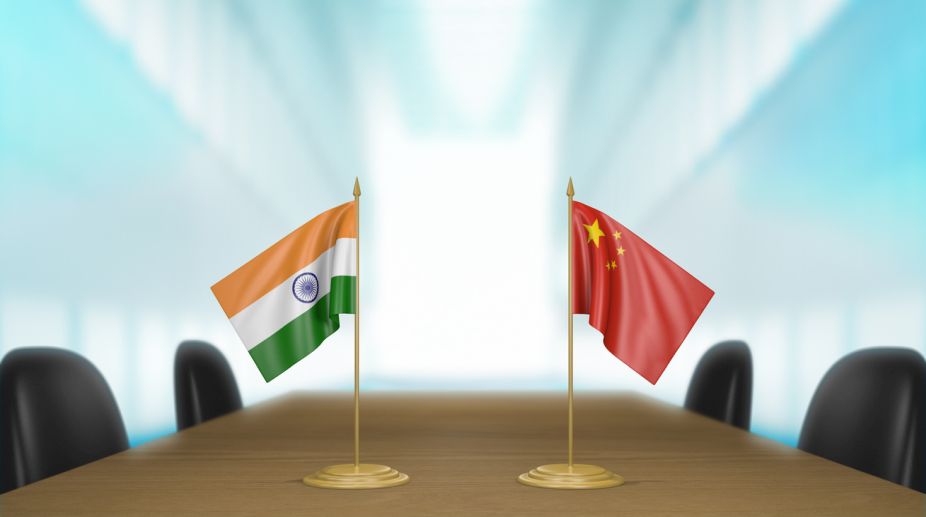As per reports, China is expected to take over controlling stakes in strategic areas due to repayment issues on projects it funded in Myanmar. China is demanding rights on the critical deep sea port of Kyauk Pyu in the Bay of Bengal, which will affect Indian interests. It may obtain control easily, as Myanmar is in no position to repay China.
In Sri Lanka, Hambantota port and Mattala airport, both strategically important for India have been handed over to China on long lease. The story remains the same. Sri Lanka took loans, could not repay, hence is willing to hand over the facilities including large tracts of land adjacent to the port for construction of SEZs to China, despite local resistance.
Chinese investments and subsequent takeover of strategic assets in financially weak nations follow a standard route. A simple example is the Myitsone dam in Myanmar. It was expected to cost approximately four billion dollars and was financed by China. It was doomed from the start and was finally suspended in September 2011. Myanmar is now saddled with the problem. If it cancels the project, it would need to repay China the sum invested so far, which is close to one billion dollars. Since its economy would not permit this, China would seek controlling rights over strategic assets including the port of Kyauk Pyu in which it had also invested. China offer loans for development to economically weaker nations at much higher rates of interest. Most projects are never completed or they do not give expected returns to enable repayment. China charges up to six per cent in cases, while the international line of credit varies between point one and three per cent. Japan offered India credit at an interest rate of point one per cent for the Ahmedabad- Mumbai bullet train.
India too charges much lower than the Chinese, but cannot match their level of investments, hence this compels nations in the vicinity to accept Chinese funding.
Pakistan is the next target. China had initially planned to invest over $46 billion in the CPEC and allied projects. The amount is now estimated to be over $56 billion, though most of it is at an interest rate of two per cent. The investment is not a grant or a donation. Majority of it is a loan which Pakistan would need to repay. It only burdens an already debt-ridden Pakistan. The peak repayment would be about five billion dollars a year, as per Pakistani government estimates, a figure high enough to warrant internal discussions.
Dawn newspaper released on Monday what it terms as the CPEC masterplan. A scrutiny of the same would indicate Chinese involvement in every sphere of Pakistan’s economy, including agriculture, telecom, internal security systems, infrastructure development and construction of the CPEC. In infrastructure and agriculture, land would be provided to Chinese companies for setting up projects.
A few sentences from the project report would indicate the impact China would have on Pakistan’s economy. It is stated that ‘China-invested enterprises will establish factories’, and ‘thousands of acres of agricultural land would be leased to Chinese enterprises’. Further it is stated that Baluchistan and Khyber Pakhtunkhwa are earmarked for mineral extraction, the primary reason for the current insurgency. The report states that the biggest risk factors are political, inflation and security. An interesting part is that China is seeking financial guarantees from Pakistan for its investments.
There is no mention of expected income from the CPEC. Dawn last weekend in an editorial titled, ‘Overselling CPEC’, questioned the projected figures given by the Chief Economist of the planning commission. Even the IMF warned Pakistan that repayment would be a major concern. However, the leadership still touts the project as the only good thing to have happened to Pakistan in 70 years.
The CPEC faces major security issues. India openly objects to the same. It transits through Taliban dominated regions and Baluchistan, hence is open to attacks and disruptions. Reports of Chinese workers being attacked are regular, compelling Pakistan to raise a division-size force solely to protect them. It is so desperate to sell the project to its own population, which doubts its viability, that even its senior army officers sing its praises in all forums.
Chinese involvement does not stop here. Pakistan was to take a part loan for the construction of the Karachi-Peshawar railway line from the Asian Development Bank (ADB). The project was being handled by a Chinese firm. After the firm objected to double financing, the loan from the ADB was dropped and is now funded by China singlehandedly. Pakistan’s minister of planning and development gave this input, however refused to answer why it this was now accepted as the railways had refused it on numerous occasions, fearing monopoly and control by China. Further, as per the document, China has already acquired the Pakistan stock exchange and is in the process of acquiring K electric, Pakistan’s largest company which provides electricity to Karachi.
Chinese loans are in addition to vast borrowings already resorted to by Pakistan from external and internal sources, including the IMF. China will soon be in almost complete control of Pakistan’s economy and infrastructure. Hence the country’s future lies in Beijing’s hands. In case Pakistan fails to repay, or in the event of its projects being targeted by hostile forces, including the Taliban, Pakistan would be in dire financial straits, as financial guarantees have been provided. China would not need to seek controlling rights over the strategic port of Gwadar, it already has it on lease for 40 years. It could take complete control over Pakistan’s foreign and internal policies, making it beholden to Beijing. Pakistan would then cease to be an independent nation, except in name, rather a province no better than Xinjiang. Its present overdependence on one nation, could break its independence in the years ahead.
The writer is a retired Major-General of the Indian Army











